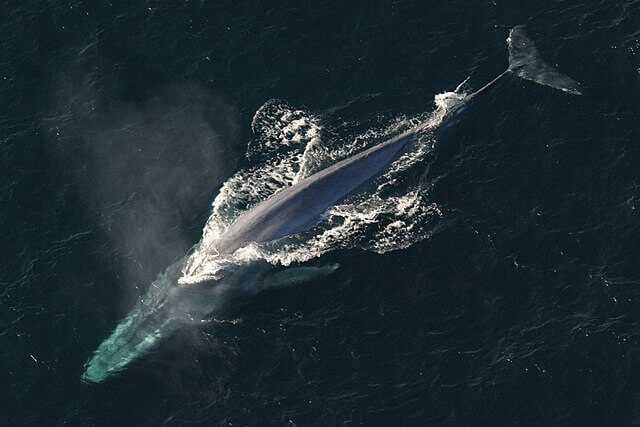
In a surprising turn of events, blue whales, the largest creatures on Earth, have reestablished residence in the Indian Ocean, specifically in the Seychelles, a region where they were decimated by whaling in the 1960s.
Footage captured by researchers and filmmakers in 2020 and 2021, featured in the Imax film Blue Whales 3D, initially hinted at their return.
However, a comprehensive year-long underwater audio recording effort uncovered that these majestic marine giants spend substantial periods in the area, suggesting potential breeding activities.
This rediscovery is hailed as a “conservation win” following the devastating impact of the Soviet whaling fleet, which reduced blue whale numbers drastically.
One of the lead investigators, Dr Kate Stafford, said: “It turns out if you stop killing animals on mass scales and you give them a chance to rebound, they can recover.”
Despite being considered endangered by the International Union for the Conservation of Nature due to extensive commercial whaling, the Seychelles region may now play a crucial role in blue whale conservation.
A “sound trap” fixed to the seabed near the Seychelles, equipped with underwater microphones and recording devices, captured the distinctive low-frequency songs of blue whales during March and April.
“This is the largest animal to ever exist on the planet,” Dr Stafford said, adding: “We want to know where they are coming back and knowing there’s a population around the Seychelles is incredibly exciting.”
Analysis of the recordings revealed the presence of blue whales and provided insights into their acoustic populations.
Chris Watson, the wildlife sound recordist on the trip, said: “We heard remarkable things – the tapping of sperm whales thousands of feet down and dolphins echolocating and communicating but sadly no blue whales.”
The Seychelles, recognising the importance of protecting its oceans, engaged in a unique “debt for nature” swap, resulting in the cancellation of approximately £16.8 million ($22 million) of its national debt in exchange for enhanced ocean protection measures. Approximately 400,000 square kilometres (154,000 square miles) of Seychelles’ seas are now formally protected.
“This means the Seychelles could be really important for blue whales,” said Dr Stafford, explaining: “They sing during the breeding season and we think it’s probably the males who are singing, based on what we know about other whales.
“So there’s also potential that the Seychelles is a breeding area or a nursery area. You can tell them apart by the sounds they make. In the Seychelles we heard one acoustic population – the one generally associated with the northern Indian Ocean.”
Dr Stafford added: “It’s the loudest sustained sound in the animal kingdom. [Their call lasts] 15 to 20 seconds at about 188 decibels, which is the equivalent of a jet engine in air.”
While the resurgence of blue whales in the Seychelles is celebrated, conservation scientists emphasise the need to safeguard these crucial areas from noise pollution, which can disrupt the whales’ communication and potentially impact their breeding activities.
“There’s not a tremendous amount of ship traffic in the Seychelles so perhaps we could think of it as a nice, quiet, safe place for blue whales,” said Dr Stafford.
This unexpected return of blue whales to a region once devastated by whaling highlights the resilience of nature and underscores the importance of ongoing conservation efforts to protect and preserve these magnificent creatures.
——————————————————————————
At Natural World Fund, we are passionate about stopping the decline in our wildlife.
The decline in our wildlife is shocking and frightening. Without much more support, many of the animals we know and love will continue in their decline towards extinction.
When you help to restore a patch of degraded land through rewilding to forests, meadows, or wetlands, you have a massive impact on the biodiversity at a local level. You give animals a home and food that they otherwise would not have had, and it has a positive snowball effect on the food chain.
We are convinced that this is much better for the UK than growing lots of fast-growing coniferous trees, solely to remove carbon, that don’t actually help our animals to thrive.
This is why we stand for restoring nature in the UK through responsible rewilding. For us, it is the right thing to do. Let’s do what’s right for nature!
Donate today at https://naturalworldfund.com/ and join in the solution!

